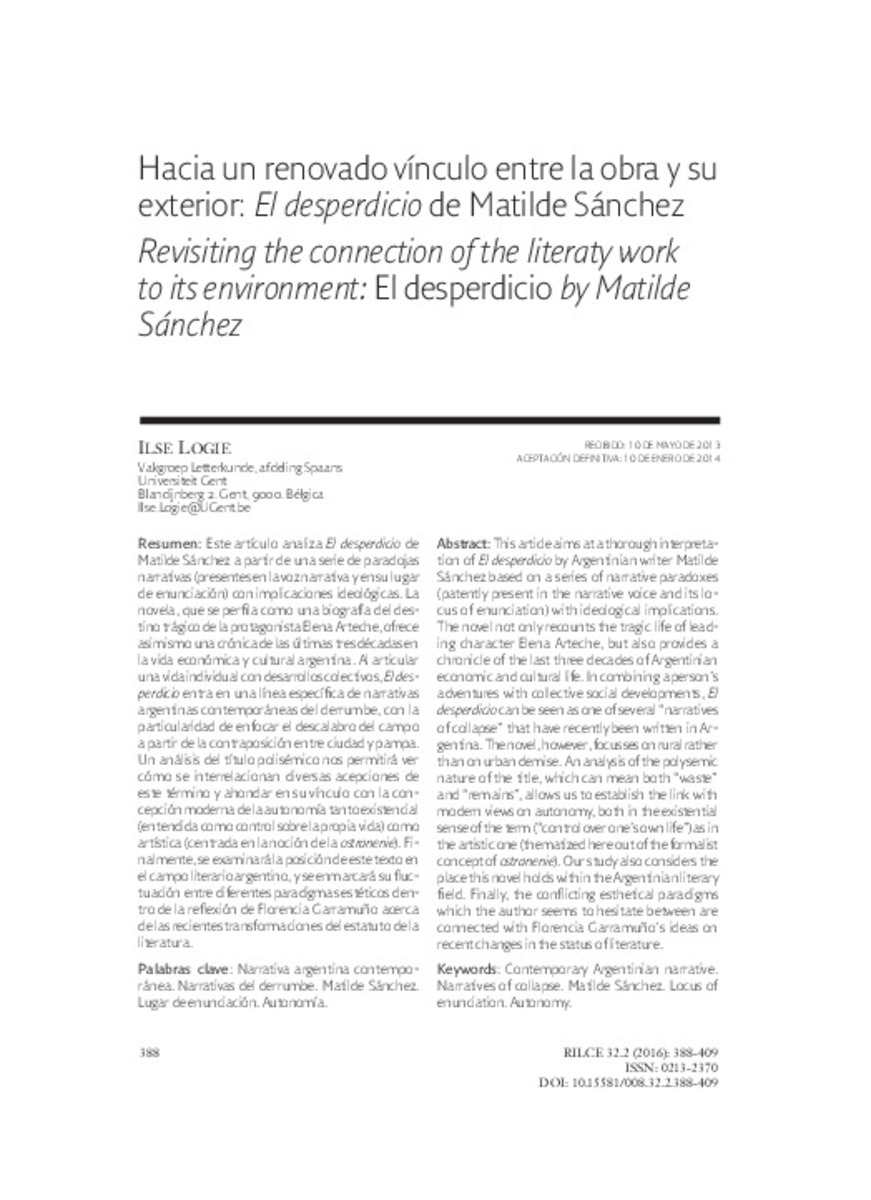Hacia un renovado vínculo entre la obra y su exterior: El desperdicio de Matilde Sánchez Ilse Logie
Other Titles:
Revisiting the connection of the literaty work to its environment: El desperdicio by Matilde Sánchez
Keywords:
Autonomía
Lugar de enunciación
Matilde Sánchez
Narrativas del derrumbe
Narrativa argentina contemporánea
Publisher:
Servicio de Publicaciones de la Universidad de Navarra
Citation:
Logie, I. (2016). Hacia un renovado vínculo entre la obra y su exterior: El desperdicio de Matilde Sánchez Ilse Logie . RILCE 32.2 , pp. 388-409
Statistics and impact
0 citas en

Items in Dadun are protected by copyright, with all rights reserved, unless otherwise indicated.







